School Aims and Values
School Aims
The Almond Hill community have agreed to promote the following aims:
- To stay physically and emotionally healthy
- To keep ourselves safe and use common sense
- To learn to interact socially within different groups and cultures and communicate effectively including respecting everybody’s views.
- To be literate and numerate and able to apply those skills to solve problems
- To learn about the world and make cross-curricular links and to see the bigger picture
- To take pride in personal appearance and presentation of work
- Develop their capability to use a range of technology for lifelong learning
- To recognising and developing creative skills
- To appreciate that society needs rules and achieving self discipline
We aim to provide an excellent education for all pupils whilst working in partnership with other local schools to provide continuity in learning and pastoral care and with parents and carers to help them support their child's education.
Monthly Values
In our everyday school life we discuss, and try to model values to support our aims and the values of life that support respect for each other and care of our community. We look at different values each month and consider what these mean and how we can show them in our actions and behaviours.
Please find the proposed order of monthly values which we will be sharing during the school year:-
September - Friendship
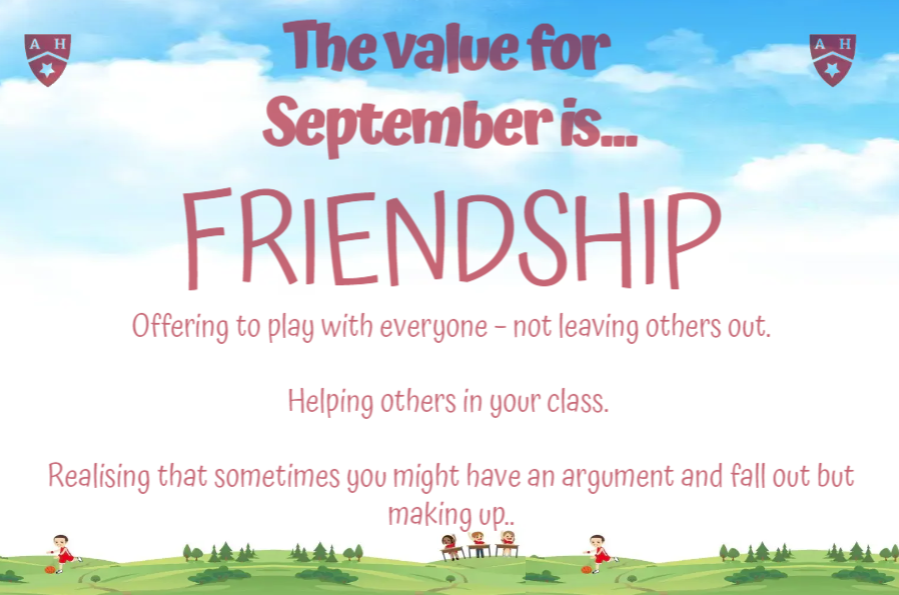
October - Honesty
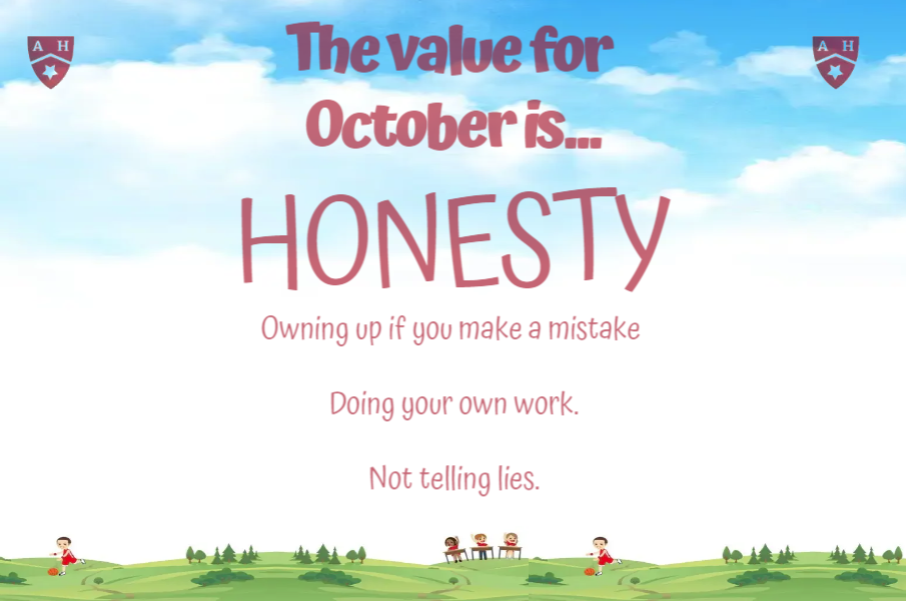
November - Respect
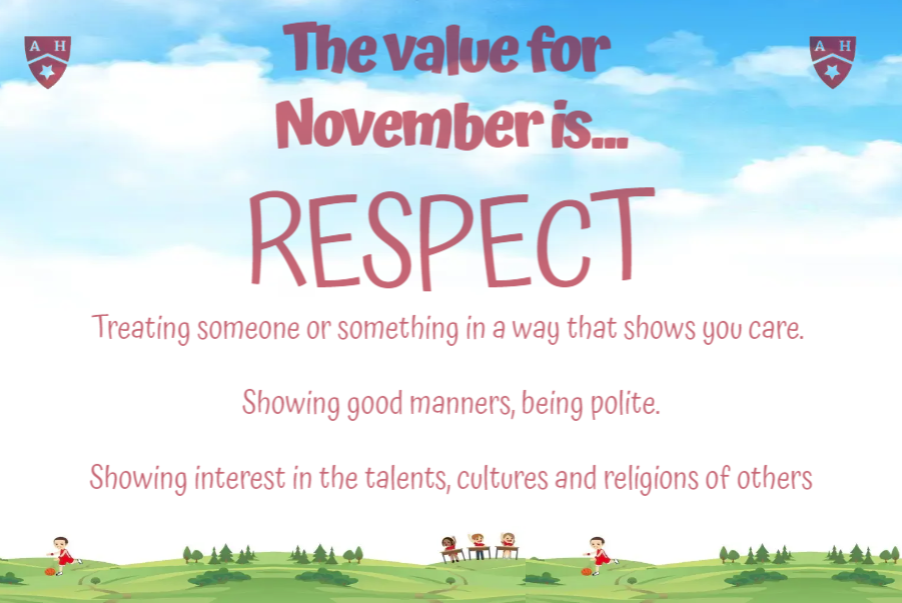
December - Generosity
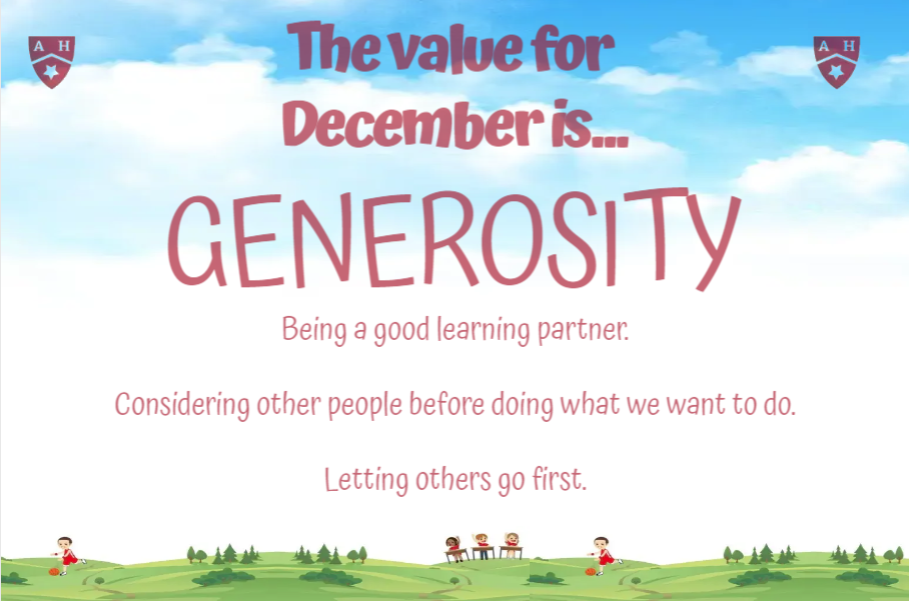
January - Gratitude

February - Courage
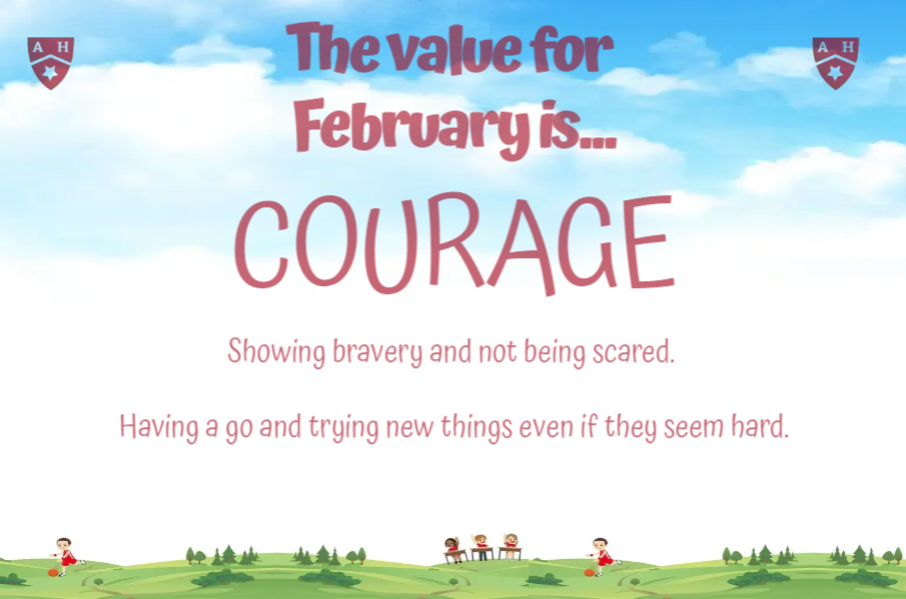
March - Kindness
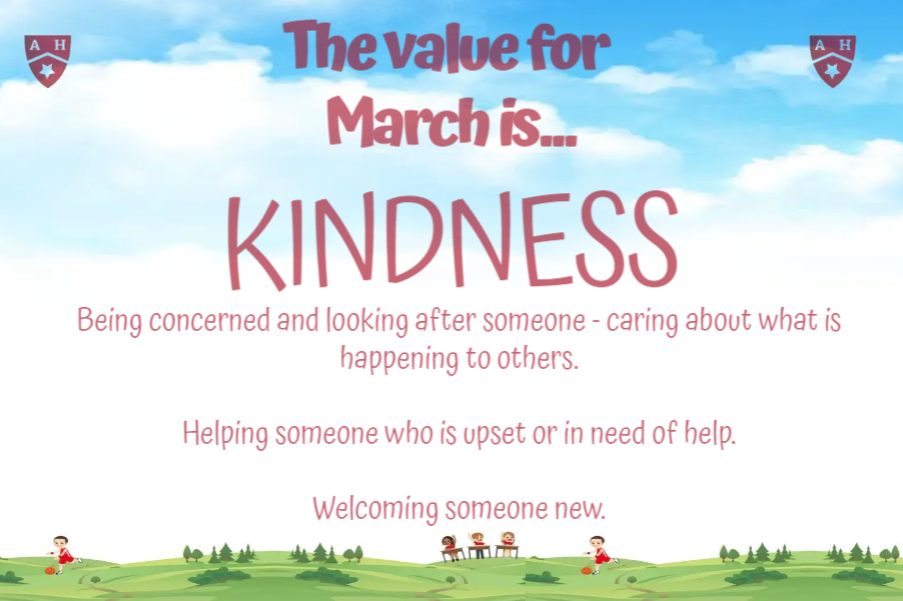
April - Positivity
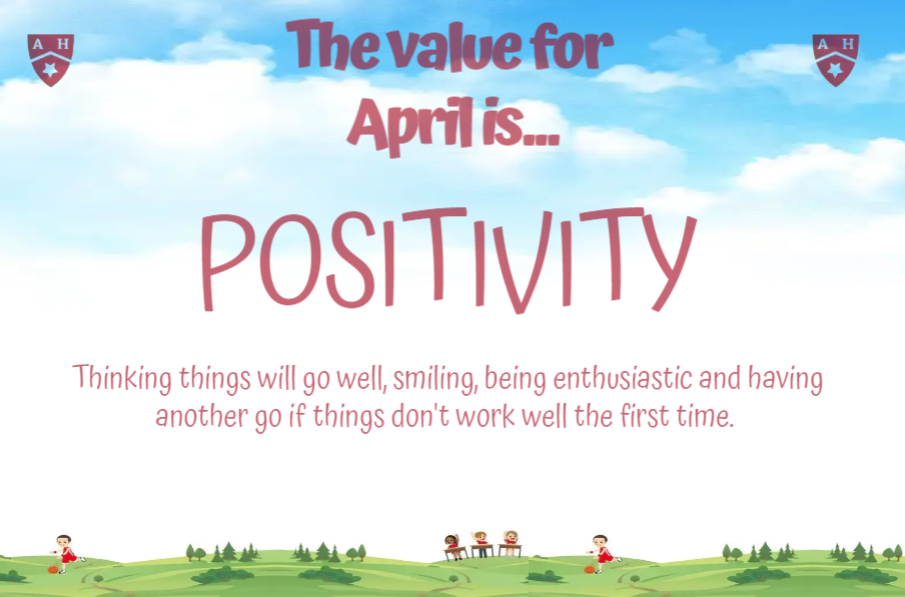
May - Trust
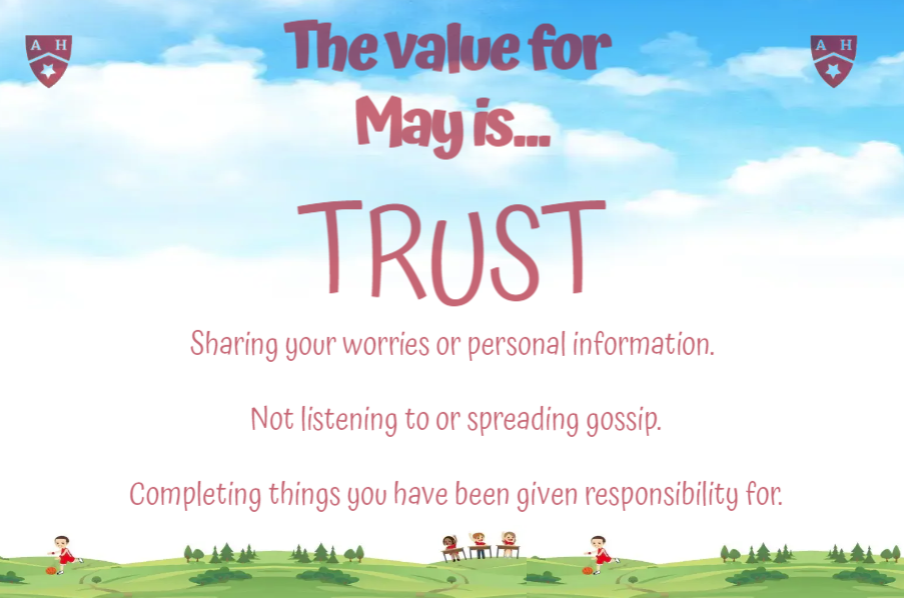
June - Inclusivity
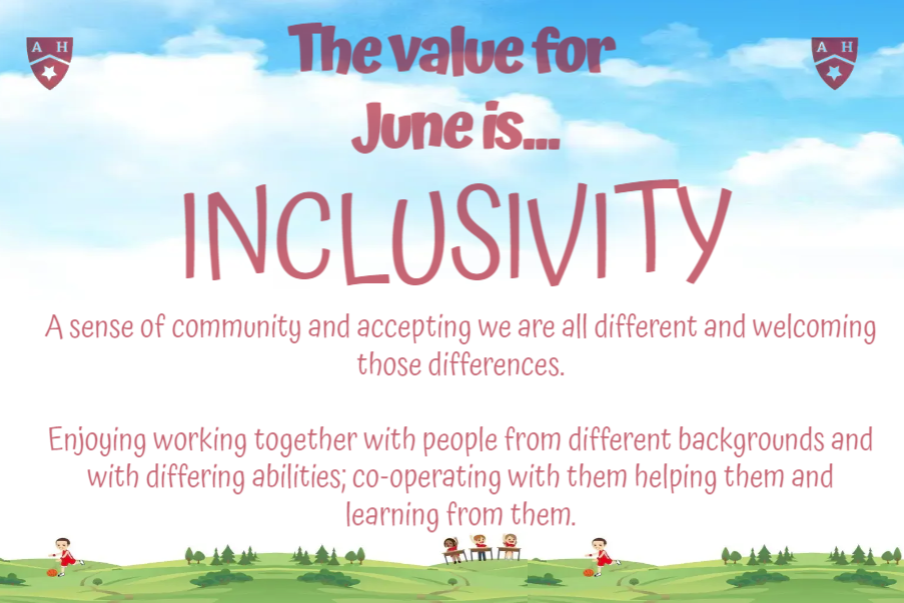
July - Reliability

